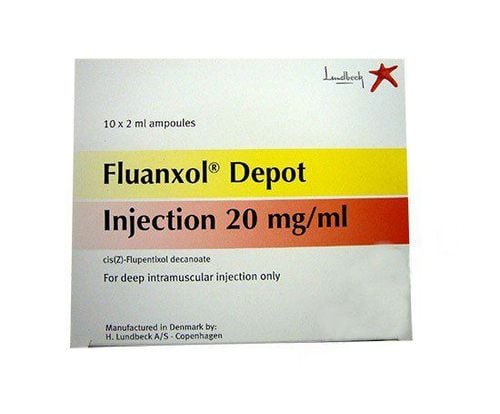This is an automatically translated article.
Stress is a nervous state under stress caused by many causes such as work pressure, study, exams,... Stress can help focus and work more efficiently. However, if the symptoms of stress are excessive, it will make the patient have negative thoughts and may even harm himself.
1. What is stress?
Stress is a stressful neurological state that includes many factors such as physical, chemical and the response of an individual trying to adapt to a change or pressure from outside or inside. When faced with a stressor, it will cause the body to secrete hormones that help provide strong energy to the muscles, breathing faster, heart rate increased.
Stress can bring positive activities, stimulate concentration in study and work. However, if the stress is too much, continuous, it will lead to depressed mental and physical health, fatigue, poor digestion, impaired immunity and can even cause depression that affects many people. surrounding relationships.
People with high risk factors for stress such as:
People with weak body: Malnourished, often sick, .. Unhealthy living environment Overworked People lack confidence, few social relationships Association Stress effects from people around
Trắc nghiệm: Bận rộn có ảnh hưởng đến sức khỏe của bạn không?
Cuộc sống hiện đại khiến chúng ta vì quá bận rộn mà quên chăm sóc sức khỏe cho chính mình. Ai cũng biết rằng lịch trình làm việc cả ngày có thể khiến bạn kiệt sức, nhưng cụ thể bận rộn ảnh hưởng thế nào tới sức khỏe? Hãy cùng làm thử bài trắc nghiệm dưới đây.
2. Causes of stress
The cause of stress is often caused by two factors. Internal factors:Health: The patient has bad health conditions such as illness, poor nutrition or a serious illness that is difficult to cure,... Psychology: Constantly thinking negative things, setting too many unrealistic expectations, putting pressure on yourself, often losing sleep and using stimulants,... External factors:
Living in a noisy environment The weather changes suddenly, too hot or too cold Environment: Dust pollution, traffic congestion Family: Discord with parents, family members, loss of friends, relatives,... Society: Work pressure, conflicts with people around, trouble in financial problems, illness in academic achievement,...

3. Symptoms of stress
Symptoms of stress are manifested in many other forms such as physical, mental, behavioral and emotional
Physical manifestations: Body fatigue, headache, sleep disturbance, heart palpitations, pain chest tightness, difficulty breathing, nausea and vomiting,... Mental manifestations: Dementia, sadness, unhappiness, inability to concentrate in work, study, confusion, indecisiveness, .. .

Behavioral manifestations: Crying, abnormal eating, rash, self-harm or harming others, smoking, addiction,... Emotional expression: Stress, anxiety, fear , restless, angry, scared, frustrated, short-tempered, exasperated, and often annoyed,...
4. Methods to treat stress
Stress management methods also depend on the patient's cooperative attitude. Your doctor will advise you to change your living environment and may include some medications. Effective methods to control and reduce stress such as:
Health exercise: Regular exercise, meditation, yoga,... Eat scientifically: Eat a full group of substances, don't skip meals , do not eat fast food or stimulants such as alcohol,... Control emotions: Relax, listen to music, read books, plant trees, cook,... Establish many positive, healthy relationships Acupuncture, massage Stress, if not treated, can lead to dangerous health complications such as neurological disorders, cardiovascular diseases, gastrointestinal diseases, physiological decline and gradual deterioration of the body. vulnerable to infectious diseases,... Methods to effectively prevent stress:
Keep an optimistic, happy spirit Arrange work, study reasonably, alternating with rest Maintain relationships nice Set realistic goals Get enough sleep

Practice sports, improve health Do not use stimulants such as tobacco, alcohol, beer,... Relax: listen to music, watch movies, read books,... In short, stress is a In a state of mental stress, an individual is trying to adapt an adaptive response to the environment. Stress can help you focus and work more efficiently. However, excessive and often repeated stress, if not intervened, can lead to a number of complications such as cardiovascular, digestive, neurological,... Therefore, when there are signs of psychological instability or Overwork requires rest, relaxation, and learning to control emotions. In addition, it is possible to meet with psychologists to be able to consult and take measures to solve the problems you are facing.
Vinmec International General Hospital with a system of modern facilities, medical equipment and a team of experts and doctors with many years of experience in medical examination and treatment, patients can rest assured to visit. examination and treatment at the Hospital.
To register for examination and treatment at Vinmec International General Hospital, you can contact Vinmec Health System nationwide, or register online HERE.
LEARN MORE
The link between stress and cancer Stress can trigger irritable bowel syndrome Consequences of a nervous breakdown













